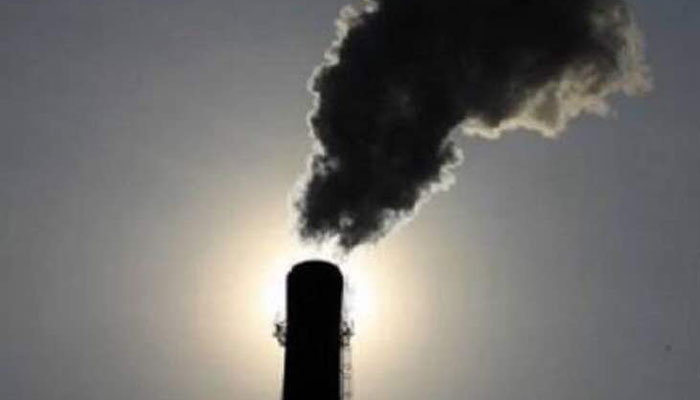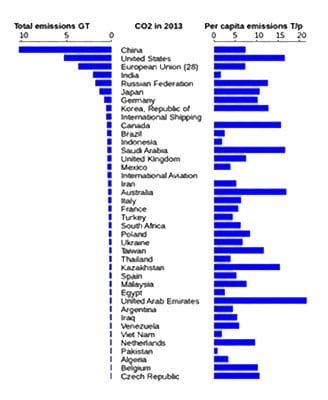Pakistan facing ‘worst’ effects of climate change
World Environment Day is celebrated across the world on June 5
June 05, 2017

KARACHI: Despite producing comparatively less greenhouse gases, Pakistan is facing some of the worst effects of greenhouse gases, stated environmental scientist Professor Dr Moazzam Ali Khan in light of World Environment Day being observed today.
Dr Khan emphasised that Pakistan’s global contribution towards greenhouse gases is just 0.3% but we are still facing the ‘worst form of climate change fallout across the world’.
Referring to his latest research about the countries worst hit by global warming, out of 12 countries in total Pakistan stands at number eight.
Explaining the phenomenon of global warming, he said carbon dioxide (CO2) and other greenhouse gases act like a blanket, absorbing infrared radiation and preventing it from escaping into outer space. The net effect is the gradual heating of the Earth's atmosphere and surface, known as global warming.
Talking about its effects locally, Dr Khan said severe global warming and rapid climate changes can lead to a rise in our sea level in the coastal areas of Sindh, specially Karachi. He warned that intense heat waves and drought are likely to increase in the future, along with diminished rainfall across the country.

He further noted a rise in the minimum recorded temperature in the country owing to climate change.
Dr Gul Munir, an environmentalist and infectious control expert, lamented that all across the world environment-friendly activities are promoted and funded but unfortunately this is not the case in Pakistan.
“More than 62 % of Karachi’s population is living in an unplanned manner. Shortage of water, lack of sanitation facilities, sewerage issues and unavailability of utilities will not only affect people's lives but also damage the environment as well,” he warned.
Commenting on everyday acts by the general public that can help the environment, Dr Khan said “the easiest way to reduces the challenges [to climate change] is to plant local trees species like Neem, Moringa and Amaltas and discourage the trend to implant imported species.”
Karachi, the country’s biggest city, has over 900 roads and according to the Karachi Metropolitan Corporation, every road must have a mandatory green belt but most of them have been occupied by land grabbers while others have been destroyed in the name of construction.
Dr Munir said another reason for the city’s poor environmental situation is that laws are not implemented and violators go unpunished. He urged the public to pressurise the government into working to save the environment.
In 1974, the United Nations designated June 5 as the World Environment Day. Every World Environment Day has a different global host country, where official celebrations take place. This year that country is Canada.











